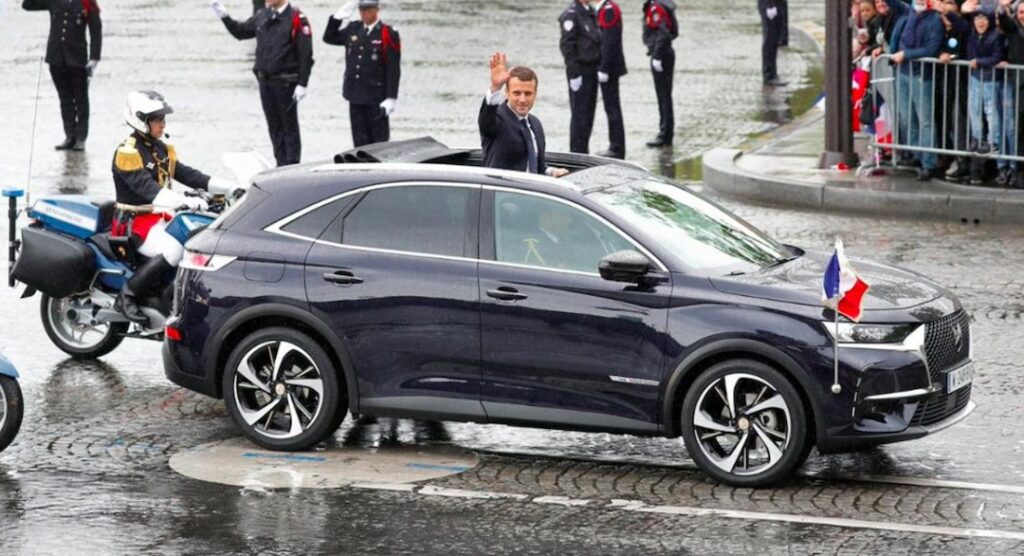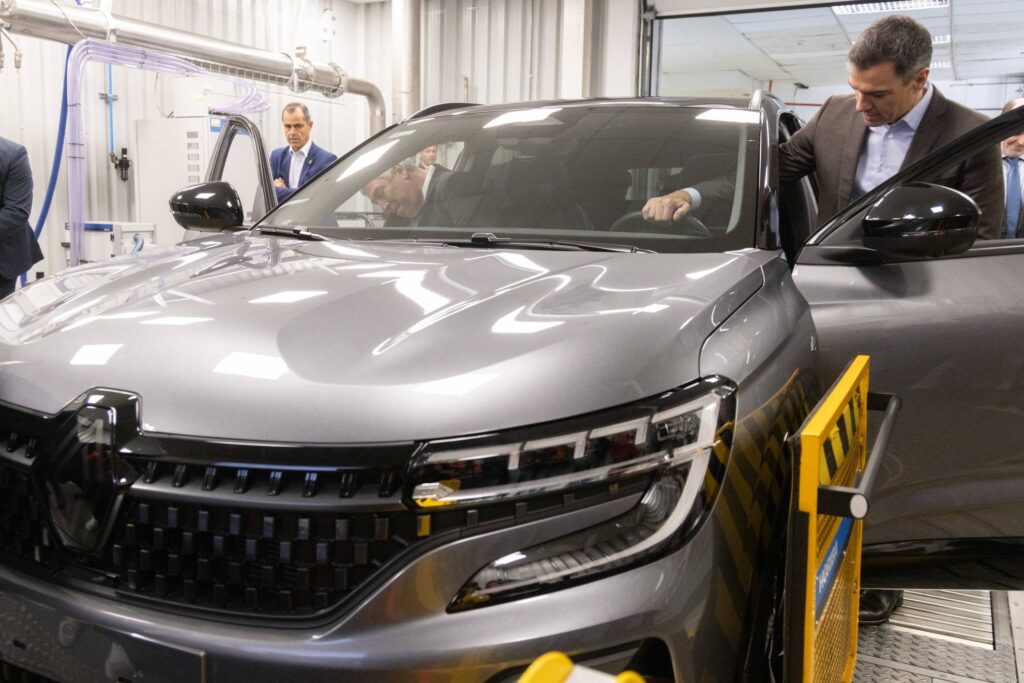More and more European governments are joining in to promote the transition to electric mobility, encouraging the use of zero and low-emission cars, and offering various incentives.
Truth is, European Union (EU) countries must completely decarbonize transportation by 2050.
However, sometimes actions don’t align with words.
Ignas Mikutis, CEO of Elinta Charge, tells Mobility Portal Europe that opinion or governmental leaders “should set a good example”.
“If government representatives talk about electromobility but don’t use it themselves, it’s a bit unfair”, he points out.
What is the reason they still don’t use electric cars?
It’s worth mentioning that despite the various incentives offered by the French government, the President himself still doesn’t use a fully electric car.

In Emmanuel Macron‘s case, the reason for using a plug-in hybrid (PHEV) DS7 SUV is that no French electric car yet meets the necessary standards and all specifications required for his needs.
It is pertinent to note that Macron doesn’t use the DS9 model because it’s assembled in China.
On the contrary, the DS7, although not electric, comes directly from the French city of Mulhouse.
The next DS model, planned for 2025, will be fully electric and will use the STLA Medium platform, along with a 98-kilowatt-hour battery offering a range of 700 kilometers.
Could Macron consider this vehicle?
This is a question mark, as the President’s car requires armor and additional security features, which could reduce the unit’s range.

Regarding the Spanish government, according to the 2022 annual report of the State Vehicle Fleet, the Prime Minister’s Office has a total of 63 vehicles of various categories.
The most recent car made available to Prime Minister Pedro Sánchez is a Renault Megane Sport Tourer E-Tech, which is a Plug-In Hybrid (PHEV) unit, registered in December 2022.
This PHEV version of the French compact offers 51 kilometers of electric range but has a small boot of 261 liters.
However, the Prime Minister has a fleet of combustion-engine cars at his disposal.

On the other hand, in Germany, Annalena Baerbock, former co-leader of the Alliance 90/The Greens party and current Federal Minister of Foreign Affairs in the Scholz Cabinet, uses a Mercedes-Benz EQS battery electric vehicle.
This Mercedes EQS model, belonging to the F segment, has been produced by the company since 2021 and is renowned for its luxury and high performance.
This choice highlights the importance of having a vehicle that offers both comfort and safety features.
However, fractions can be found within the same party.
Almost all federal ministers of the faction drive environmentally friendly cars, except for Robert Habeck, German Minister for Economic Affairs and Climate Protection.

The vehicle the ruler drives is specially protected by the Federal Criminal Police Office (BKA).
According to Spiegel, highly armored bodies, weighing several tons, are only available with combustion engines.
According to BKA regulations, manufacturers don’t find it profitable to offer electric vehicles with this level of protection.
As mentioned, the safety factor is important for political leaders, and many electric vehicle models don’t meet the requirements.
Can automotive companies make progress in this aspect so that more and more leaders join the transition?








